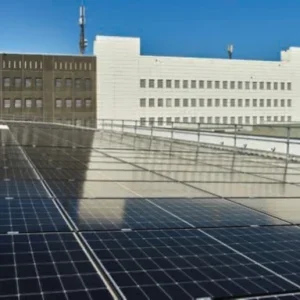Globally, Siemens wants to become carbon neutral by 2030, highlighting companies’ responsibility towards driving decarbonization. Its goal is to have all of its production facilities and buildings worldwide achieve a net zero- carbon footprint by 2030.
“Sustainability is top of our agenda when it comes to the technology we supply and in our operations. Our experience has shown with our solutions, considerable energy savings of up to 30% can be achieved in most buildings,” said Matthias Rebellius, Managing Board member Siemens AG and CEO, Smart Infrastructure. “Companies play a significant role in the fight against climate change and we intend to lead by example.”
The campus in Zug is Siemens’ largest Swiss location. It is a showcase for smart buildings that combines innovative building technology and renewable energy to achieve energy efficiency and decarbonization, saving 600 tons of CO2 in 2019, compared to the average heat consumption, which corresponds to a reduction of 60%.
Last year, Nidec ASI launched its ‘I want a Green Future’ campaign to remind everyone how important it is to protect our planet and invited others to join the company in promoting a global economic recovery that is, above all, sustainable. It claims we have all seen the beneficial side effects brought about on the environment by the lockdown imposed to counteract the dramatic impact of the COVID-19 pandemic, such as better air quality and clearer waters, which has seen fish and fauna returning to our rivers and canals.
The Nidec ASI campaign is taking as a starting point these results, achieved in such a short time, to emphasize how our activities must radically change if these benefits are to continue, claiming ‘we all have a duty to commit ourselves to reducing our environmental impact, guaranteeing a green and sustainable tomorrow for future generations’.
Now, Danfoss has released its Sustainability Report 2020 sharing the steps it has taken for climate change. Highlights include; being one of the first Danish companies to sign up to the UN Global Compact; a commitment to decarbonizing its global operations by 2030 including a Power Purchase Agreement, providing green electricity from January 2021 to its sites in Denmark and Germany; and working to make its campus at its headquarters in Nordborg CO2 neutral.
“The economic reboot after COVID-19 has to be green and sustainable. The green agenda drives jobs and growth, in addition to addressing climate change, it will help us create a sustainable future,“ said Kim Fausing, president and CEO, Danfoss.
By Jenny Eagle






